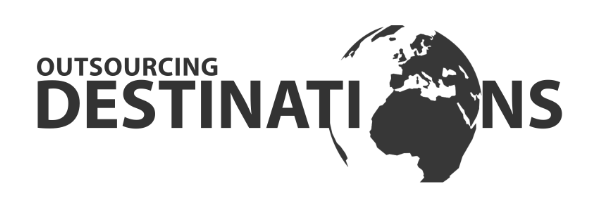“Graduates in Egypt are finishing their university education with proficiency in a wider variety of languages that allows companies in Egypt to provide tailored BPO/ITO services,” says Rasha Ezz El-Din Mohamed, Sales and Marketing Director of Egyptian BPO/ITO outsourcer, Xceed. “In fact, over 90,000 Egyptians graduate annually with English-language qualifications, making Egypt highly favorable in the United States and Australian BPO/ITO markets.”
Arabic is also the native language of Egypt and thus opens doors to offer BPO/ITO services to 300 million Arabic consumers globally, including its home market. Other languages spoken by Egyptians include:
- French;
- German;
- Italian;
- Spanish
- Chinese;
- Turkish;
- Russian;
- Greek;
- Hebrew;
- Urdu;
- Korean; and
- Japanese.
Low Labour Costs
Despite having proficiency in a vast number of languages, Egyptian BPO/ITO services are cost-performance-effective. BPO/ITO workers in Egypt have lower salaries compared to other established BPO/ITO destinations. The average median wage for contact center agents is estimated to be US$402 per month, and for contact center managers, it is estimated to be US$950 per month, according to the All-Africa Global Business Services Benchmarking Survey by Knowledge Executive (2020).
In the ITO market specifically, labor costs are low compared to other established ITO destinations. On average, an Egyptian Junior Software Developer earns between US$480 and US$601 per month. Data analysts earn an estimated US$346 per month, and IT Managers earn up to US$1,051 per month, according to salary reviews conducted for the All Africa Global Business Services Benchmarking Survey.
Covid-19 Response and New-Normal Transition
“During the global Covid-19 pandemic, Egypt’s BPO/ITO industry experienced a smooth transition to work-from-home set-ups thanks to its existing reliable internet infrastructure,” says Ezz El-Din Mohamed. “This enabled BPO and ITO companies in Egypt to migrate 50% to 85% of their workforce to work-from-home in a two-week timeframe with zero disturbance in service delivery.”
In fact, Egyptian BPO companies made the necessary arrangements to ensure that their workforce could work from home effectively by providing laptops, installing business and security systems, and allowing workers to take other office equipment home, according to Ryan Strategic Advisory. This resilience of the country to the pandemic has encouraged a number of multinational companies to divert their attention to Egypt as an ideal location for business continuity.
ITIDA has also implemented several COVID-19 initiatives to support the country’s BPO/ITO industry, aiming to boost remote working and freelancing, providing solutions relating to the pandemic, expediting cash reimbursements, and shifting to online processes. These initiatives include the following:
- Egypt FWD initiative to train 100,000 people in data science, web development, and digital marketing and onboard them on freelancing platforms;
- Hackathon;
- Expedited ExportIT Program cash rebate;
- Webinars: Saturday Night Live with TIEC;
- Marketplace: “Our Opportunity is Digital” providing opportunities for SMEs in national digital transformation projects;
- IT Academia Collaboration: Fast-Track Funding;
- Access to Electronic Innovation Complexes; and
- Availing its Services online.
Conducive Business Environment
The Egyptian government has successfully crafted a business environment that makes it appealing and easy for foreign investors to establish BPO/ITO operations there. This has been achieved through the implementation of key economic reforms and programs.
Specialized centers and laws have been established to vastly improve the ease of doing business and thus attract foreign direct investment (FDI) into Egypt. Some of the laws that have created a conducive business environment in Egypt include the following:
- Data law protection in line with GDPR;
- New Investment Law;
- Cybercrimes Law; and
- E-Signature Law.
The centers that have been instrumental in fostering a conducive business environment include:
- Intellectual property rights centers;
- A one-stop-shop for investors;
- Regional Centre for International Commercial Arbitration;
- Eight economic courts across Egypt handle 17 laws.
As a result, Egypt is ranked fourth in the cross-market favorability rankings for front-office BPO buyers globally.
Egypt has also achieved the following rankings and accolades:
- Top 10 Most Favorable Global BPO Locations (2020 Ryan Strategic Advisory)
- Top 10 Preferred Global HRO Locations (2019 Knowledge Executive)
- ITU Ranking: 103
- 2018 Tech Readiness Ranking 96 (World Economic Forum)
- 2019 Global Competitiveness Ranking: 93 (World Economic Forum)
About the author: Mohamed Hashad, Xceed’s Telecom & Information Systems Director with over 20 years in IT and the Telecommunication industries, is responsible for managing the Telecommunications and Information System in Xceed. This entails directing overall technology strategy and architecture, daily IT operations, including IT infrastructure, voice and data networks, security, and industry-leading technology initiatives.
Engineer Hashad is an expert in communications and information technology atat Xceed. He holds a Master of Science degree in Management of Technology (MOT) from Nile University and has more than 20 years of experience in the telecommunications networks and information technology industry.
Prior to joining Xceed, Mr. Hashad held the roles of Senior Networks Manager, Networks Operations Manager, System Engineering Manager, Presales Manager, and HW Technical Support Manager. He has vast experience to manage large network and network operations in multiple large organizations operating in the field of information technology.












